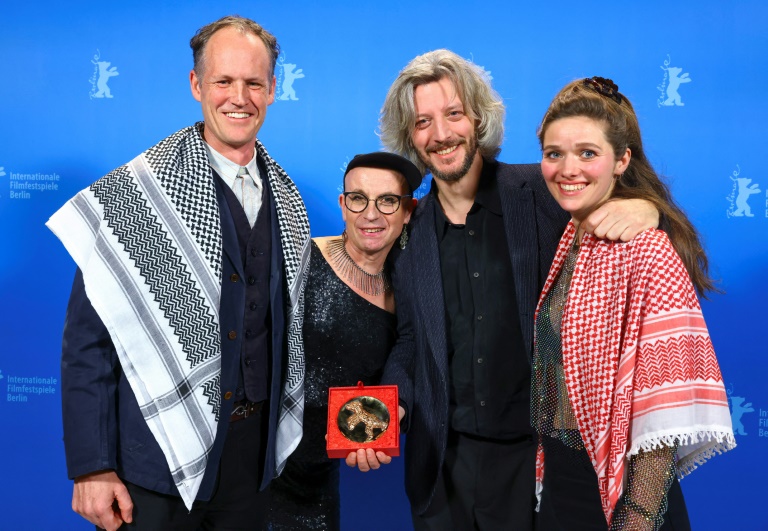"Cancel culture" is a much-discussed concept that involves individuals or collectives who engage in actions or statements that are in some way chauvinistic being publicly branded and often excluded from contexts. This word is primarily used by right-wingers and reactionaries to complain about an allegedly dominant and hegemonic "left-wing cancel culture" because, for example, "you're not allowed to say anything these days". Just how successful the alleged "left-wing cancel culture" is in reality can be seen from the fact that patriarchal criminals like Till Lindemann and Luke Mockridge can continue to fill the event halls of the republic without having to fear any consequences - apart from a few good protests.
However, there is also a kernel of truth to the question of "Cancel Culture" and the cry that you are no longer allowed to say anything. Since the coronavirus pandemic, we have been experiencing increased attacks on our democratic rights and, in particular, on freedom of expression.
A concrete example of this silencing by the ruling class is the debate surrounding the so-called Berlinale incident. On February 24, critical and progressive jury members and artists, some with Palestinian and Jewish backgrounds, had campaigned at the Berlinale awards ceremony with signs and statements for an end to the Zionist genocide against the Palestinians and called for an end to apartheid laws by Israel. In addition, German involvement in the genocide in Gaza was denounced and, alongside a ceasefire, a stop to all arms deliveries from Germany to Israel was demanded. As a result, a disgusting and slavering stream of chauvinism and agitation against the progressive participants of the Berlinale erupted in the German political and media landscape, which is in line when it comes to Palestine. Die Welt speaks of "anti-Semitic abysses", Der Spiegel calls it a "disturbing award ceremony", while Westdeutscher Rundfunk is outraged that "there was even applause after the statements".

Ben Russell, Jay Jordan, Guillaume Cailleau and Servan Decle take a stand against the genocide in Gaza at the Berlinale. Source: https://www.derstandard.de/story/3000000209150/berlinale-eklat-um-aussagen-zu-israel-war-das-antisemitisch
Afterwards, Berlin's ruling CDU mayor Wegner and the Green Party's Federal Government Commissioner for Culture Claudia Roth were publicly criticized for alleged applause. Kai Wegner later wrote on social networks "Berlin has a clear stance when it comes to the defense of freedom. This also means that Berlin is firmly on Israel's side. There is no doubt about that. The full responsibility for the deep suffering in Israel and the Gaza Strip lies with Hamas. It is up to them to end this suffering by releasing all the hostages and laying down their weapons. There is no room for relativization here. I expect the new Berlinale festival management to take action here" and Claudia Roth did not hesitate to announce that her clapping was only aimed at the Jews and Israelis. After these statements, which speak volumes for the understanding of freedom and anti-Semitism of government politicians, a debate has broken out about how to properly restrict freedom of expression in the cultural sector.
NRW State Culture Minister Ina Brandes replies to WDR "It must be ensured that public funds are not misused to finance obviously anti-Semitic, racist and/or group-specific misanthropic projects, art and culture" and Claudia Roth calls for a code of conduct to be established for cultural institutions. Meanwhile, WDR manages to link tightened security measures for a discussion event at the "lit.Cologne" literature festival between the hated Federal Minister of Economics Habeck and the Zionist lobbyist Michel Friedman with an increased potential for anti-Semitic attacks. Whereby behind alleged or real potential threats there is more likely to be broad anti-imperialist anger and rejection of such figures. And even the past is not safe from the WDR, which considers the agitation against the Ruhrtriennale festival and its then director for supporting the BDS movement to be anti-Semitic. This shows that there is now a tradition in NRW of taking action against progressive and anti-imperialist artists under the guise of combating anti-Semitism.
One example of this is a recent article published in the Süddeutsche Zeitung about the machinations of the right-wing and Zionist blog "Ruhrbarone", whose team of authors is well networked in bourgeois politics from the FDP to the far right and regularly runs smear campaigns against everything that does not unconditionally support the Israeli genocidaires. This is shown by the example of Sharon Dodua Otoo, a publicist with Ghanaian roots who was to receive the Peter Weiss Prize of the city of Bochum and was denied this due to an inflammatory article by Ruhrbarone, which linked her to an allegedly anti-Semitic petition. When a cultural scientist subsequently proved that Otoo had not even signed the petition in question, Bochum's city leaders did not revise their decision. It was enough that Otoo generally had a reputation for supporting the Palestinians.
And these examples show how the ruling class is actually trying to ban progressive and revolutionary positions from the public sphere. People are disinvited, funding is withdrawn and they are publicly pilloried. The pattern has been the same since corona. Progressive positions such as solidarity with the struggle of the people of Palestine are portrayed as reactionary and chauvinistic and the fight against progressive positions such as Palestine solidarity as progressive. The spokesperson for the NRW Ministry of Culture follows this line: "Workshops and further training for selection juries should be made mandatory for project funding in order to raise awareness of anti-Semitism, racism and group-specific discrimination." Translated, this means that the bourgeois state and its protagonists will take a very close look in future to ensure that progressive positions are not promoted. One lesson that can be learned from this is not to become dependent on the state in the first place in order to preserve one's political independence.










